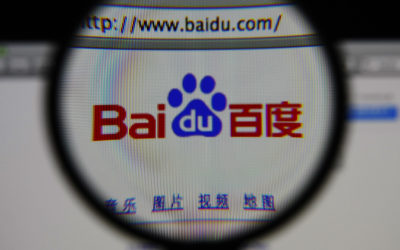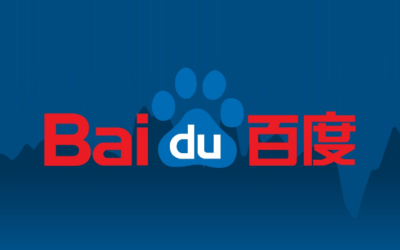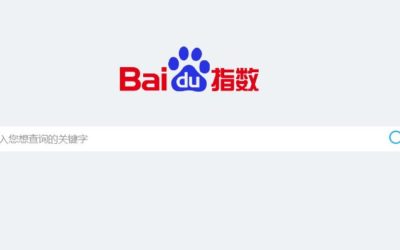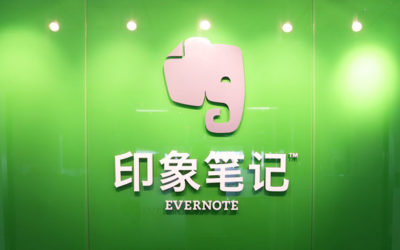Our China Blog
6 Bizarre Body Image Weibo Trends That Went Viral
Last few of years have seen the rise of several bizarre body image challenges that went viral on Weibo, one of the most popular Chinese social media networks. Those Weibo trends attracted millions of views, likes and retweets as well as great deal of criticism and mockery. Let’s have a look at some of the most popular ones.
Six most popular body image Weibo trends
Weibo trend #1: hairy armpits selfies
Guide to Baidu Baike, China’s Wikipedia Equivalent
Baidu Baike is the Chinese equivalent to Wikipedia and is one of the most visited websites in China. Baidu SERP prominently features Baidu Baike entries, therefore getting a page on this platform can propel brands to the top search results.
Here is our guide Baidu Baike.
Baidu Baike (百度 百科 in Chinese, translated as “Baidu Encyclopedia”) is a collaborative, web-based encyclopedia that is owned and produced by the Chinese search engine Baidu. The test version was released on April 20, 2006 and within three weeks the encyclopedia had grown to more than 90,000 articles and surpassing Chinese Wikipedia. In January 2018 Baidu Baike had more than 15.1 million articles. read more…
Baidu SERP: How to Take Advantage of Baidu Zhidao Marketing
Baidu Zhidao is China’s equivalent to Quora or Yahoo Answers and one of the most linked knowledge base sources. Baidu Zhidao Marketing is an alternative way to get to Baidu top search results.
What is Baidu Zhidao
Baidu Zhidao (百度知道) literally means Baidu Knows is a Chinese language collaborative Web-based collective intelligence by question and answer which is built and run by Baidu. read more…
China SEM: Getting to Know Baidu PPC Conversion Types
Tracking conversions should be the essential part of your China SEM strategy. This post will help you understand what types of Baidu PPC conversion can be tracked and how they can be set up.
If you are familiar with Google AdWords, Baidu PPC conversion types are quite similar. read more…
Understanding Baidu SERP: Increase Exposure with Baidu Baike Marketing
Baidu Baike is China’s answer to Wikipedia and one of the most trusted source for information. Baidu Baike Marketing offers brands a backdoor access to Baidu top search results.
As China’s largest search engine, Baidu handles approximately 3.3 billion queries per day. In comparison, Google is only slightly ahead with 3.5 billion queries per day globally. Unlike Google, vast majority of Baidu searches come from China. read more…
Choosing Between PPC vs. SEO for Chinese Market
SEO and PPC are the two basic options for boosting traffic to your website. Choosing between PPC vs. SEO for Chinese market is often a difficult decision to make.
Up until the middle of 2016, Chinese PPC, especially with Baidu, was, on average, delivering better returns than SEO. This was due to several factors:
- First, the search results, especially for popular terms, were dominated by paid ads. In some cases, hardly any organic results would be displayed in the first page;
- Second, there was little visual distinction in Baidu between paid and organic results and most people couldn’t even tell the difference.
Basics of China Keyword Research: Measuring Search Trends
One of the foundations of successful online strategy in any market is keyword research and China is no exception. Since the familiar tools such as Google keyword planner are irrelevant here, China keyword research must be done with the local equivalents.
Basics of China Keyword Research: WeChat Index
WeChat Index Tutorial
According to the most recent data, WeChat has passed a milestone of a billion users which puts it far ahead of any other Chinese social media platform. Measuring trends on such an enormous network could potentially bring the most statistically accurate data to marketers. read more…
Basics of China Keyword Research: Weibo Index
Weibo Index Tutorial
In terms of monthly users, Weibo is the second largest Chinese social media platform after WeChat. However, unlike WeChat, it is still primarily PC based. Weibo is one of the most powerful marketing tools in China offering wide range of possibilities for reaching people across various demographics and psychographics. read more…
Basics of China Keyword Research: Qihoo Index
Qihoo (360 Search) Index Tutorial
Qihoo, also known as 360Search and So.com, is the second largest Chinese search engine. By various estimates, it holds between 15 to 25% of the search market share and is fairly popular among younger users. read more…
Basics of China Keyword Research: Baidu Index
Baidu Index Tutorial
Being the largest search engine in China, Baidu keyword research should be the one to start with. Currently, Baidu offers Baidu Index tool that is free for Baidu advertising accounts, offering some basic information to users. read more…
Overview of Advertising with Chinese Search Engines
China is one of only three major markets where Google is not a dominant search engine. The other two markets are Russia where Yandex holds the commanding market and Korea with Naver being the most popular choice. Currently, Baidu is the most popular among Chinese search engines with market share somewhere between 75% and 85% according to various estimates.
Moreover, Baidu is also the leading choice for searches on mobile devices, the increasingly important Chinese search engines market. In June 2016, it was reported that Baidu had 667 million monthly active users (MAU) just for that month alone. read more…
10 Features of Mobile Apps Market in China
With China’s smartphone market reaching 800 million users, the mobile apps space has been quite busy. Given its mobile and ecommerce growth, coupled with rapidly improving mobile infrastructure, China presents an enormous opportunity for both apps developers and marketers.
There are considerable challenges in achieving success in the mobile apps market. read more…
Online Fraud in China Digital Advertising Is Its Biggest Problem
The main reason why online advertising has overtaken traditional channels in almost every area is that it is more measurable, thus can be made more effective. However, what undermines this efficiency is the proliferation of fraud in the form of “non-human” traffic.
Being a worldwide industry problem, China’s digital advertising market seems to be one of the worst affected ones. Chinese internet is the second most popular advertising media after television and was estimated at $55.48 billion by the end of 2018 according to China Daily. Unfortunately, advertisers’ losses could account for up to third of that amount, mostly lost to non-human traffic and fraudulent CTR (click through rate). read more…
Web Presence Localization in China, Part 1: Translation
Having localized website for Chinese market is one of the essential steps a foreign company should take in order to build trust and improve brand awareness locally. Localization is not the same as translation of the content, although translation is the major part of it. Our experience suggests that it isn’t a quick process and, most importantly, it requires careful planning and verifying every step with your contractor.
If you are on a bootstrap budget, the first thing to try would be finding a freelance translator through sites like Upwork or Freelancer. It’s by far the cheapest option but could also be a hit and miss. Typically, we always suggest to have your site translated to both Simplified Chinese for Mainland China audience and to Traditional Chinese used in Hong Kong and Taiwan. read more…
Successful China Marketing Strategies: Lessons from Evernote
Evernote is the most popular online note taking app that works across multiple platforms and devices. Since its launch in 2008, Evernote became one of the most successful stories in tech space, managing to acquire millions of dedicated users and devoted fans, over 100 million according to company’s figures, myself included. They have also realized early on the huge potential of Chinese market and succeeded in developing and deploying effective strategy in China.
Just one year after its launch in China in 2013, Evernote was already claiming 4 million users. Last year, China has become its second largest market with reported 20 million users. Yinxiang Biji, it’s Chinese company, has recently announced its plans to go public in China. read more…
5 Most Useful Features of WeChat for Marketers
After reaching nearly 1 billion registered users, WeChat continues to reign supreme in China social media landscape. From marketer’s standpoint, the platform is still limited in many way due to its more private nature compared to other social media channels. On the other hand, some unique features of WeChat for marketers that can be used quite effectively.
In this post we are going to have a look at top 5 of them.
5 Most Useful Features of WeChat for Marketers
Building Chinese Website: 15 Points Checklist
Building a Chinese website for a foreign brand maybe not be as straight forward task as in the case of other markets. Thanks to a unique nature of Chinese internet and various market specifics, brands must modify their approach for establishing China web presence.
read more…



















